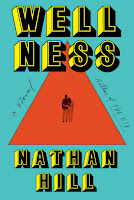Leila Mottley made waves when, at just 19 years old, she released her debut novel Nightcrawling. That book became a bestseller, an Oprah Book Club pick, and a critical darling. It even landed on my list of favorite reads of 2020. Not bad for a first outing. When her publisher offered me an early copy of her highly anticipated sophomore novel, The Girls Who Grew Big, I couldn’t say yes fast enough. It's another raw, sobering character study about girls forced to grow up too fast and live with the consequences of their choices.
From the start, Mottley makes clear the kind of unflinching story she’s here to tell. We meet Simone, a pregnant teenager giving birth in the back of a pickup truck. The baby’s father watches in panic as she delivers fraternal twins, right there in the thick, humid air of small-town Florida. There’s a certain brutality to the moment, but also a revelation. For the first time in her life, Simone knows what real love feels like. She isn’t sure how she’ll provide for her children, but she knows she will. She has to.
Then there’s Emory, who was at the top of her class before she got pregnant. She never stopped doing her schoolwork—not during the pregnancy, not after giving birth. Every day, she arrives at school with her newborn in tow, determined to graduate and attend college. One mistake isn’t going to ruin her life. She won’t let it. Not for her sake, and not for her child’s.
Finally, we meet Adela, a sixteen-year-old swimming phenom with Olympic dreams—until her pregnancy sends those ambitions off course. Her parents send her away from their Indiana home to live with her grandmother in Padua Beach, Florida. It’s there that Adela meets Simone, now raising four-year-old twins, and Emory, along with the rest of “the Girls”, a makeshift community of teen mothers doing their best to raise their children and hold onto their futures.
From the outside, it may seem as though these girls have lost their way. But as Mottley makes clear, they’re just beginning to find it.
With The Girls Who Grew Big, Leila Mottley proves the success of her debut novel was no fluke. This new work revisits familiar themes—lost innocence, the impact of poverty, and the paradoxes of womanhood—but it’s far from a retread. Mottley expands her storytelling by shifting perspectives among three protagonists, each of whom faces the realities of teenage motherhood in her own way. Through them, we see how different personalities respond to the same impossible weight.
At times, it can be overwhelming to read. The stories are tragic in a way that makes you pause and reflect on them. But that’s the point. These traumas aren’t uncommon. For many young women, this is real life. The systems aren’t built to support them, and the social stigmas they face are relentless.
The Girls Who Grew Big is raw, emotional, and brilliant. Mottley takes big swings and grapples with even bigger ideas. The novel may feel rough around the edges at times, but that’s part of its power. This is writing with heart. It feels lived-in, honest, and bursting with truth. I have no doubt this book will end up on my list of favorites at the end of the year.
For more information, visit the author's website, Amazon, and Goodreads.
(2025, 50)





















